Perinephric Abscess — Open Surgery Drainage: treatment in the Best Hospitals of Germany
Treatment prices are regulated by national law of the corresponding countries, but can also include additional hospital coefficients. In order to receive the individual cost calculation, please send us the request and medical records.

Department of Adult and Pediatric Urology, Andrology
The Department of Adult and Pediatric Urology, Andrology offers the full range of services in the areas of its specialization. Men and boys with diseases of the reproductive system can be diagnosed and treated in the medical facility. Doctors also treat infertility and erectile dysfunction. Medical care is provided to men and women with diseases of the urinary system, namely kidneys, ureters, bladder, and urethra. The department is certified as the Prostate Cancer Center by the German Cancer Society (DKG), which indicates the excellent quality of the services provided in this area. The department's urologists have a perfect command of the innovative treatment methods, including holmium laser enucleation of the prostate (HoLEP), photodynamic therapy, and da Vinci robot-assisted surgery. The department employs comprehensively trained and experienced doctors who apply advanced medical achievements in their practice. Each patient is provided with an individual approach, considering their specific needs and wishes.
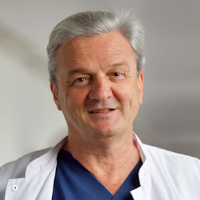






Department of Adult and Pediatric Urology
The Department of Adult and Pediatric Urology provides high-precision diagnostic examinations and effective treatment for diseases of the genitourinary system and reproductive system in men and boys. Of particular interest is drug therapy and surgical treatment of prostate, bladder, kidney, testicular, and penile cancers. The department is part of the Comprehensive Cancer Center Ulm (CCCU). For the patient, this means that their clinical case is studied by a multidisciplinary tumor board, which determines the optimal treatment tactics. The department is also certified by the German Cancer Society (DKG), so all therapeutic procedures meet strict national and international standards. The department's team of urologists also has unique clinical experience in the minimally invasive treatment of kidney stone disease, benign prostatic hyperplasia, neuro-urological dysfunction, and all urologic diseases in children. During the surgical treatment, the specialists at the medical facility successfully use minimally traumatic surgical techniques. They perform endoscopic, laser, minimally invasive, and robot-assisted surgery using the innovative Da Vinci system. The department treats about 3,000 inpatients and 9,000 outpatients with clinical cases of varying complexity annually. The number of surgical procedures performed and treatment outcomes are regularly published by the authorized commission of the Initiative Quality in Medicine (IQM).
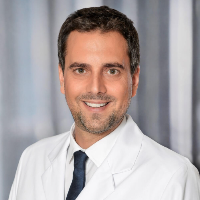





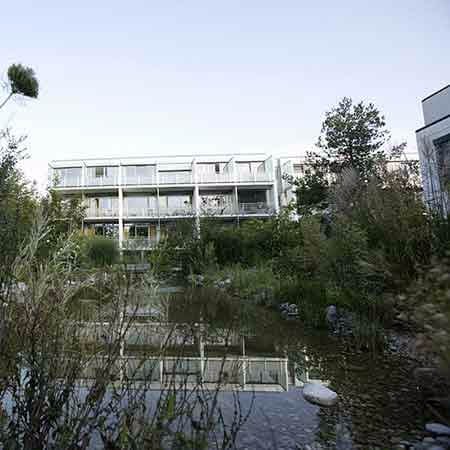
Department of Adult and Pediatric Urology, Andrology
The Department of Adult and Pediatric Urology, Andrology offers the full range of services for the diagnostics and treatment of urologic diseases in men and children, as well as urogynecologic disorders in women. One of the priority focuses of the department's specialization is the restoration of potency in men. According to the international ratings, this is the best hospital in Europe, where a team of urologists effectively treats erectile dysfunction. Another key focus of the department's work is on the treatment of benign and malignant prostate diseases. To treat prostate cancer, the doctors perform low-traumatic robot-assisted interventions using the very latest da Vinci® XI HD surgical system. The therapeutic offer is complemented by the treatment of pathologies of the kidneys, ureters, bladder, testicles and penis. In the field of pediatric urology, the correction of congenital malformations of the reproductive system in boys is of particular interest. The department's doctors are professionals in their area of specialization, so the patients can be sure that they will certainly find an effective solution even for the most complex clinical case.
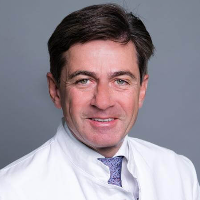
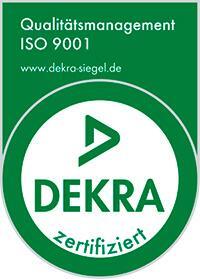
A perinephric abscess is an abscess located near the kidney, resulting from the death of adipose tissue. In 75% of cases, this is a complication of urinary tract infection, and, in 25% of cases, the infection penetrates into the tissues surrounding the kidney through the blood from distant purulent foci. In severe cases, inflammation spreads to the psoas and transverse muscles, as well as to the abdominal cavity and pelvis.
Even in such situations, with the timely provision of medical care, the disease can be successfully cured. Doctors in Germany treat patients with antibiotics and perform a minimally invasive percutaneous puncture for an abscess. In rare cases, surgery may be required. Should a surgical intervention be required, German urologists strive to preserve the kidney, and surgery is often performed with the use of minimally invasive techniques through short incisions.
Content
Doctors use antibiotics and a percutaneous drainage to treat the disease. A surgical drainage is a less required option, and, in very rare cases, doctors have to remove the kidney.
You can undergo your treatment at one of the following hospitals: Urology Clinic Munich-Planegg Munich, University Hospital Ulm, or University Hospital of Ludwig Maximilian University of Munich.
We will take care of the organization of your trip if you make an appointment at the hospital through the Booking Health service. Doctors at the Booking Health company will study the results of your diagnostic examinations, recommend the best treatment method, and monitor the course of therapy. The Booking Health managers will help you to apply for a visa, get to the clinic, book accommodation, process all the necessary documents, and also advise on any issues. You will be accompanied by an interpreter during your treatment.
Treatment tactics
The management of patients depends on the size and location of an abscess, and the presence of comorbidities. After the start of therapy, tactics may change depending on the results achieved.
Primary care standards for patients are as follows:
- abscesses up to 3 cm can be treated with antibiotics without surgery and invasive procedures;
- abscesses larger than 3 cm require a percutaneous drainage to evacuate pus;
- if conservative therapy for an abscess size of up to 3 cm is ineffective, a percutaneous drainage may be indicated;
- if conservative therapy is not effective, and a percutaneous drainage is ineffective or impossible (for example, due to the inconvenient location of the abscess), an open surgery drainage becomes an option of choice;
- for patients with chronically infected and atrophic kidney, a nephrectomy (kidney removal surgery) is performed.
Conservative therapy
Since a perinephric abscess is caused by bacteria, antibiotic therapy is the mainstay of treatment. Antibiotics are prescribed from the very beginning of the disease, immediately after sampling material for bacteriological diagnostics.
Antibiotics are initially prescribed empirically, that is, against the most common pathogens. This is Staphylococcus aureus, or Enterobacteriaceae. If an abscess has developed against the background of pyelonephritis, it is most likely caused by Escherichia coli.
Most patients undergo a bacteriological examination. Biomaterial (usually pus obtained as a result of an abscess puncture) is placed on a nutrient medium. It grows colonies of microorganisms, which are then identified. In addition, during the examination, the sensitivity of isolated bacteria to various antibacterial agents is determined.
Given the antibiogram data, doctors can adjust the treatment regimen after 2-3 days. They prescribe the drug to which the pathogen is highly sensitive. Sometimes the scheme does not have to be changed. If the initially prescribed antibiotics work well, they continue to be used further.
The course of antibiotic therapy lasts 2-3 weeks. A patient can first receive drugs intravenously, but after achieving initial treatment results, further therapy will be carried out with oral forms of antibiotics.
Minimally invasive and surgical treatment
Invasive treatment is required for an abscess size of 3 cm or more, as well as for insufficient effectiveness of conservative therapy.
The standard of invasive treatment in Germany is a percutaneous abscess puncture. A doctor inserts a thick needle into the cavity with pus and evacuates it under ultrasound or CT guidance. A specialist can inject antimicrobial and anti-inflammatory drugs. A drainage is left in the wound and pus flows through it. After the amount of fluid secreted decreases significantly, the drainage will be removed, and the patient will be subsequently treated with antibiotics.
Surgery for perinephric abscess treatment in Germany is very rarely used. This can become an option if:
- the disease is advanced and an abscess is very large;
- the inflammation has spread to neighboring organs and tissues;
- the kidney is practically destroyed by the disease;
- a percutaneous drainage is hindered by the location of the abscess;
- concomitant urolithiasis or vesicoureteral reflux.
In the overwhelming majority of cases, doctors at German hospitals carry out organ-preserving treatment. They remove the abscess and make drainage, but preserve the kidney. A nephrectomy is rarely required.
In the classical version, operations for perinephric abscess are performed through large incisions. However, German Urology Centers also perform laparoscopic, retroperitoneoscopic, and robot-assisted surgeries. They are more sparing, safe, and are performed with thin long instruments or slave manipulators of a robotic surgeon through short incisions. After such operations, the rehabilitation period is reduced to a minimum.
You can go to Germany to get medical care for your perinephric abscess. It is worth starting treatment as soon as possible. The specialists at the Booking Health company will arrange for you an urgent appointment with a urologist in one of the clinics in Germany, if required. On our website, you can find the cost of treatment and make your appointment at a clinic at the best price. We will help you to find a hospital in Germany and organize your trip.
Authors:
The article was edited by medical experts, board-certified doctors Dr. Vadim Zhiliuk and Dr. Nadezhda Ivanisova. For the treatment of the conditions referred to in the article, you must consult a doctor; the information in the article is not intended for self-medication!
Sources:

